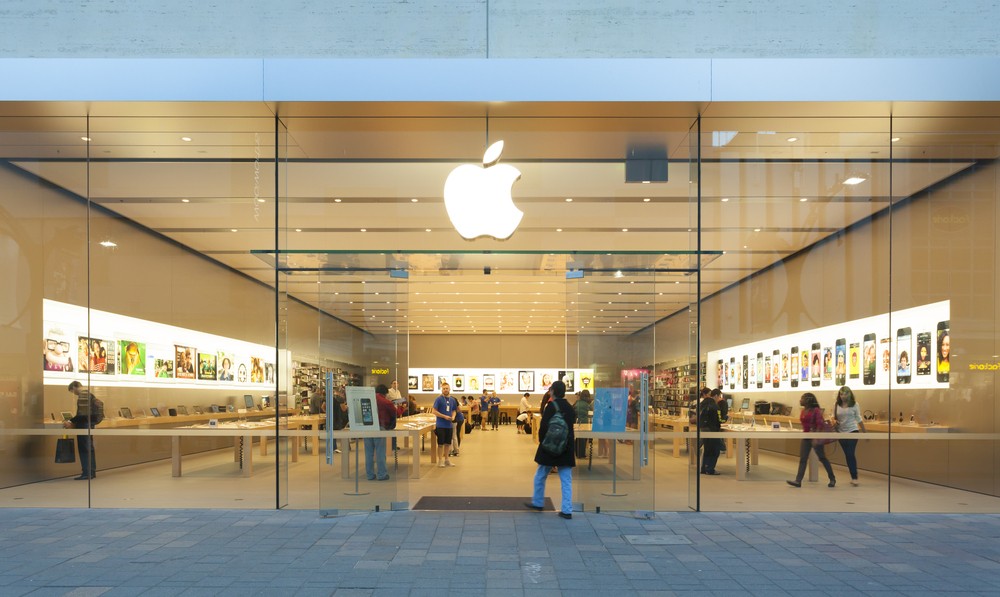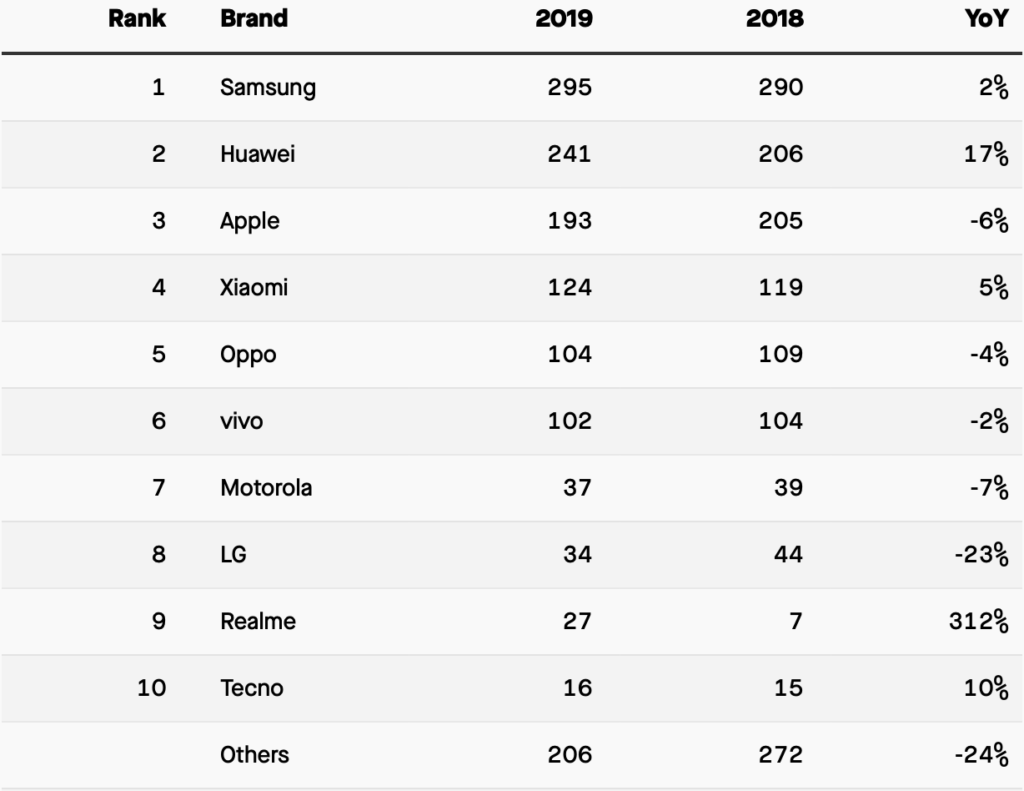Search
Cart
Your cart is empty


0
Your cart is empty
Search
mobiletrade 2020-03-04 08:38:52

The last major epidemic, the coronavirus, is rapidly spreading throughout the world as ordinary people begin to see how this new invisible enemy changes their lives, being forced to wear mask covers, cancel mass public events, and even stop going to work.
Of course, the global economy has suffered the effects and the stock has been throwing red numbers for days. But the technology industry is one of the most affected for a fairly obvious reason: most of the components of the products we use every day are made in China, where this new virus was born. Not to mention directly to Chinese companies that sell technology devices to the West, such as Huawei or Xiaomi.
China originally hoped that factory and company closures would end at the end of January, but they soon had no choice but to extend them until February 10. Even now in March, with the epidemic receding in China, companies in several provinces haven´t yet reopened.
Several of the most powerful companies in the smartphone market are Chinese, such as Huawei, Oppo, Vivo and Xiaomi. According to analyst Gerrit Schneemann, the reversal of the coronavirus threat doesn´t means that they can resume operations soon. Sales of smartphones in the Chinese market fell dramatically in February, and are unlikely to recover this March.
As if this weren´t enough, says Schneemann, “in the long term, the recovery of the supply chain will take longer, which will affect not only China and Asia-Pacific, but also global supply”.
A spokesman for Huawei told Quartz that the impact of the coronavirus on its supply chain was “limited”, although they continued to monitoring the situation. Huawei managed to resume operations in February after a temporary shutdown, although it postponed its annual developer conference in Shenzen, which was due to begin on February 11.
With regard to Western companies, the great Mobile World Congress (MWC) conference, which was to be held in Barcelona (Spain), was canceled by the organizers for fear of the epidemic, after the withdrawal of several technology companies that were going to participate, including Sony, Amazon, NVIDIA, LG, ZTE and Ericcsson.
Amazon hasn´t yet announced the closure of its offices in China (has no office in the origin region of the virus, Wuhan), but prohibited its employees from traveling to China without company approval. Only essential trips will be allowed, and employees traveling to China are advised to work from their homes for a period of 14 days before stepping on their office again.
LG, Razer and Facebook also banned non-essential trips of their employees to China. According to IDC, 2020 will become a year of decline in the global smartphone market due to the impact of the coronavirus on supply chains. To be exact, smartphone shipments will decrease by 2.3% in 2020. The situation is even worse for high-end models (whose prices are $1000 or more). According to IDC, sales of these devices will drop by 14.5% in 2020.
Although much of the companies in the rest of the world, such as Samsung, Google and Sony, have gradually moved their factories out of China in recent years, moving to countries with cheaper manufacturing costs, such as India or Vietnam, they still depending on China for many of the components used in their products, such as sensors or glass screens.
However, Apple is the big exception regarding the tendency of the technology industry to rely less on China. Apple’s supply chain remains deeply anchored in the Middle Empire. According to Reuters, only 10% of Foxconn plant employees in Zhengzhou and Shenzen have returned to work. These factories are a huge part of the global iPhone assembly line. For these reasons, the manufacture of new iPhones will be severely affected.

It´s only at this beginning of March that Foxconn dares to announce a formal restart of activities by the end of this month, after China managed to contain the spread of the disease. Foxconn also expects half of its workforce throughout China to rejoin its jobs by April. However, the company cannot quantify how serious the real effects of the outbreak are on its production rate.
Apple has already closed all its retail stores and corporate offices in mainland China on February 1, whose total reopening continued to be postponed again and again. At this time, Apple has gradually reopened its stores and offices in areas less affected by the epidemic.
It was also rumored that Apple would launch a new low-cost model in March, which would receive the possible names of “iPhone SE2” or “iPhone 9”. However, the launch of this device has already been postponed. Right now, Apple’s supply chain network providers are working at just 50% capacity, according to comments from a source to Nikkei Asian Review. It would be very optimistic to expect the new iPhone to be released in April.
Allegedly, Apple placed orders for 65 million older iPhones (mainly the iPhone 11 series, so we will see fewer iPhone 11 devices in stores for a few months), and also 11 million products of the cheap iPhone 9, but these schedules already have been affected by the outbreak of coronavirus. However, apparently the production rate of the iPhone 12 has achieved to remain intact.
The new release of iPad Pro and Airpods is also expected to be delayed due to the coronavirus epidemic.
Not only smartphones are affected, but also other industry sectors such as desktops and laptops. China also manufactures half of the planet’s LCD panels, which will affect the market for televisions and computers. There are no less than five LCD factories located in Wuhan, which stopped working since China put the city in quarantine in January and now they begin to slowly rejoin their activities.
This disruption of operations will likely cause inflation in the prices of electronic parts. In February, TrendForce cut its global laptop market forecast by 26% in 2020, compared to the same period in 2019. Canalys expects worldwide PC shipments to decline between 3.4% and 8.5% this year.
According to Geoff Pollak, managing director with Alvarez & Marsal firm, some companies may face this crisis in the supply chain better if they have enough cash to pay suppliers in advance.
Facebook has already temporarily frozen new purchases of its latest Oculus Quest VR devices, taking responsibility for the delay to the outbreak in a post on Android Central.
Get the latest articles on all things data delivered straight to your inbox.
All blogs articles


Are you looking for budget-friendly but high-tech smartphone options in Australia? Are you striving to invest your hard-earned money against quality?...

As much as we love high-end smartphones, it's becoming impossible to afford them. Unless you earn a high salary and receive an annual promotion, it wo...

Whitestone Dome Glass Screen Protector is one of the best options to protect your phone from scratches, cracks, and other types of damage due to its s...